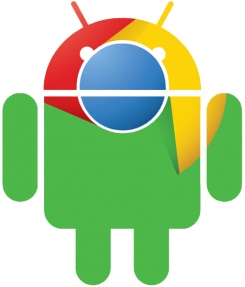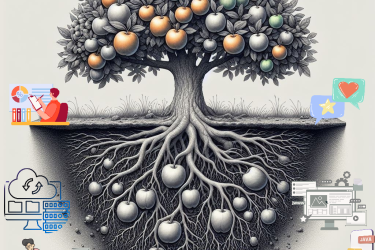 Why isn’t Chrome a part of Android? It’s a question as old as time itself. Or at least a few years old. But given that the same company, Google, makes both products, it never made much sense. Now they’re finally taking steps to resolve this. A bit. Maybe.
Why isn’t Chrome a part of Android? It’s a question as old as time itself. Or at least a few years old. But given that the same company, Google, makes both products, it never made much sense. Now they’re finally taking steps to resolve this. A bit. Maybe.
As a group of Googlers have announced on the WebKit-Dev group today (relayed by Google’s Peter Beverloo), the Android team is now committed to working more closely with the WebKit community. Yes, it’s a bit odd that a product so devoted to “open” wasn’t really working with the open source community before — but hey, better late than never.
Writes Andrei Popescu:
We would like to give an update about WebKit on Android. A while ago, we started the effort to upstream the Android port of WebKit. For a variety of reasons, this work took longer than anticipated and was never finished. We realize that the incomplete Android port that exists today in WebKit ToT has caused quite a bit of confusion and inconvenience to the project as a whole and we are very sorry for that.
The full story is a bit more complicated than it appears on the surface. While Android has its own separate browser which isn’t branded as “Chrome”, the two do share some code. But they’re not the same, and two separate teams work on each. For whatever reason, Google chose not to brand the Android browser as Chrome, and doing so now may cause some confusion since there’s Chrome OS — another operating system built by Google that’s unrelated to Android.
So here’s what happening now: Google’s Android team is going to start making available another, slightly modified build of the Android browser, which will be fully open source. Think of it as Chromium to Google’s Chrome. Android-specific code will be removed and presumably, anyone will be able to use this code to build a new mobile WebKit-based browser.
Here’s all of that in tech-speak:
We plan to start by setting up a webkit.org build bot that will compile Chromium’s DRT for Android using the Android NDK, SDK and toolchain. We anticipate a reasonably small set of changes to the Chromium port to achieve this. We’re fully committed to maintaining this new flavor of the Chromium port of WebKit and having a build bot up and running as soon as possible will make this an easier task. At the same time, we will be removing the existing incomplete Android port. This includes the Android-specific code in WebCore/platform/android, as well as any code guarded by the PLATFORM(ANDROID) macro.
What makes the especially hard to follow is that it sure sounds like the Google plans to call this open source version of the Android browser Chromium as well. It will just be a new flavor. Perhaps that’s not so bad since there are already Windows, OS X, and Linux flavors (and the Android one will be really close to the Linux one given the underlying OS technology they share) — but the finished product for all of those operating systems is called Chrome, on Android it still won’t be (presumably, anyway).
Follow all of that?
Yes, it’s still confusing, but regardless, this is a welcomed step in the right direction.
Also read: http://news.cnet.com/8301-30685_3-20095696-264/google-move-hints-at-chrome-for-android/


